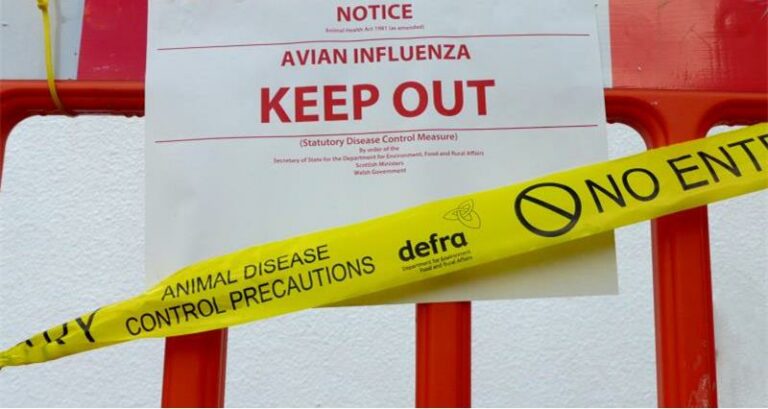The Government has announced further support for the poultry industry to help farmers and producers with the impact of bird flu.
The UK is dealing with its worst-ever bird flu outbreak, with over 200 cases confirmed across the country in the last 12 months.
Under the new plans, the Government will alter the existing bird flu compensation scheme, allowing compensation to be paid to farmers from the outset of planned culling rather than at the end. Defra said this will allow it to provide swifter payments to help stem any cash flow pressures and give earlier certainty about entitlement to compensation.
“The payments better reflect the impact of outbreaks on farmers,” Defra stated.
Early-slaughter option
In consultation with the Food Standards Agency, an easing of marketing rules is also being introduced in England. The measures mean that farmers who breed turkeys, geese or ducks for their meat will have the option to slaughter their flocks early and to freeze these products, which can then be defrosted and sold to consumers between the period 28 November and 31 December 2022. This option will give farmers certainty over business planning, Defra said.
Just under two-thirds of the UK’s 11 million turkeys are consumed over the Christmas period.
Farming minister Mark Spencer said: “Farmers and poultry producers are facing real pressures as a result of this avian flu outbreak, and we know many are concerned about the impact on their flocks. We hope the practical solutions announced today will help provide greater financial certainty. We very much appreciate the continued cooperation from the sector as we battle this insidious disease and will continue to keep the situation under close review.”
Further to go
British Egg Industry Council chief executive Mark Williams welcomed the announcement, but said more needed to be done. “Whilst this will go some way to alleviate some of the issues, we firmly believe that the Animal Health Act 1981 should be amended to allow compensation to be paid on sick birds (as for some other four-legged species).
“In the absence of this, we believe that an assessment for compensation should be paid at point of notification i.e. when an APHA vet first visits a site.”
Last week, the chief veterinary officer introduced a national Avian Influenza Prevention Zone, meaning that bird keepers must implement strict biosecurity measures to safeguard their flocks from the highly infectious disease. In addition to this, a regional housing measure remains in place across Norfolk, Suffolk and parts of Essex, where keepers must house their flocks until further notice.


